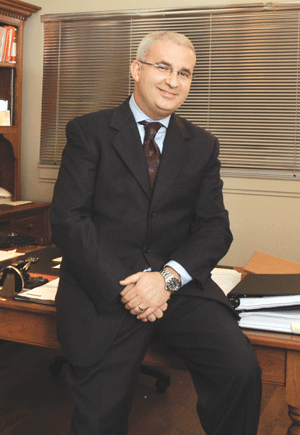The major aspect of Bill 14 is the regulation of the paralegal profession, but several other aspects of the law will also be affected now that the Act to Promote Access to Justice has been passed.

Under changes to the Provincial Offences Act in Schedule E of Bill 14, for example, witnesses will now be permitted to give evidence in provincial offence matters by electronic means, such as videoconference, teleconference, or audioconference.
"This is a good way of using technology to improve the justice system and to make sure that decisions are made on the merits as opposed to on some technical slip or issue like that," says James Morton, president of the Ontario Bar Association.
"It is an important change, and we are content with it on the basis that the rights of cross-examination are not limited and it seems that that's very clearly not being curtailed in this legislation. So it's really just a way of bringing the Provincial Offences Act into the 21st century," says Morton.
"What is interesting is whether or not that's going to have impact on the legislation of the court processes, because obviously if it's successful in the provincial offences context, people are going to start looking at it for other contexts as well," he adds.
Morton comments, however, that that would also require more funding, as some restructuring would be needed in order to put in electronic courtrooms. He says the court at 361 University Ave. in Toronto already has a well-structured electronic courtroom in place.
"If the provincial offence changes work out well, as I feel they will, I'm sure you'll see similar initiatives in other courts," he says.
Joseph Neuberger of Neuberger Rose LLP, a trustee with the Toronto Lawyers Association, says applying electronic testimony to trial proceedings will be somewhat difficult.
"As much as it seems like it's going to help, it's still quite an issue to set up teleconferencing in a courtroom," he says. "Many of our provincial courts are not up to where they should be from a technology standpoint, so this will take quite a bit of effort and it may very well be that in certain instances it's used for less contentious evidence where we don't have a tremendous amount of cross-examination or difference on the points."
He says, however, "practically speaking, it may actually be quite helpful to both the prosecution and defence, especially if you are trying to call expert evidence and you may have difficulty getting your expert in from another city or province."
Neuberger notes this change in legislation may set a precedent for other courts in certain instances.
"I could see, in criminal court one day, having a provision where certain witnesses could testify by electronic means - again, with respect to many issues which are not contentious. It may very well be that certain experts who are often travelling and whose schedules conflict with the trial proceedings may opt to give evidence by way of electronic means.
"With good teleconferencing, there's not much lost by way of the dynamics of a trial. I would not want to see it replace complainants coming forward to the court and testifying," he says.
There is already a teleconferencing option in place in certain criminal cases, he says, where the witness would testify from a separate room, with the video feed going into the courtroom.
Another section of Bill 14 requires future justices of the peace to have additional qualifications, which include 10 years of full-time experience doing paid or volunteer work, a university degree or college diploma, or meeting equivalency requirements.
Last month, the OBA's submission to the standing committee on justice policy included the suggestion that future justices of the peace should also have full legal training.
"What the bill does, is it does improve the training and qualification requirements for JPs and we are very pleased with that. We thought it should go a little further, but we are pleased with what the bill has done," says Morton.
Other amendments to the Justices of the Peace Act include the creation of a justice of the peace appointments advisory committee made up of seven core members and several regional members. While full- and part-time justices of the peace could previously be appointed, under the new legislation only full-time JPs will be appointed. Justices of the peace who retire before the mandatory retirement age will also now be able to change their designation to a per diem JP.
Other changes that will be implemented as a result of Bill 14 include amendments to the Courts of Justice Act, which clarifies the roles of the attorney general and the judiciary and requires an annual report on courts administration, while the creation of the Legislation Act requires every act to be published electronically and in print.

 Under changes to the Provincial Offences Act in Schedule E of Bill 14, for example, witnesses will now be permitted to give evidence in provincial offence matters by electronic means, such as videoconference, teleconference, or audioconference.
Under changes to the Provincial Offences Act in Schedule E of Bill 14, for example, witnesses will now be permitted to give evidence in provincial offence matters by electronic means, such as videoconference, teleconference, or audioconference.